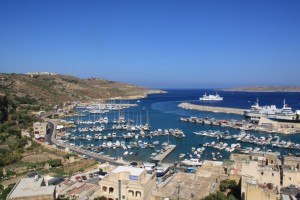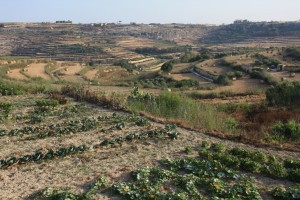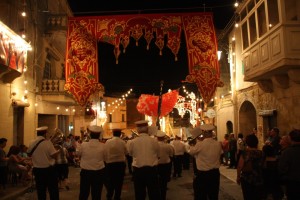Anthropology is a social science that has a focus on culture. However, as a student of Anthropology now for two and half years, I am very apprehensive to use the word culture, and to say that Anthropology is the study of culture. It is a heavily loaded word with a weighty history, particularly in Southern Africa and even this university; and to this day Anthropologists are still grappling with what culture actually is. Some Anthropologists may say Anthropology is a comparative Sociology, but even in this description the troublesome history of Anthropology is evident, in the comparative part.
Anthropology has historically been about the North studying the cultures of the South, facilitated by, and helping to facilitate, colonial expansion; and through this came writings of one culture being more advanced and civilized than another, which seemingly justified oppression and conquest. While Anthropology of the 21st Century is dealing with its legacy and grapples with the meaning of culture (because we cannot deny we all live differently), perhaps its most unique aspect is its research methodology and subsequently produced text, called an Ethnography.
Participant observation is a qualitative research methodology that entails the Anthropologist immersing oneself in the social situation to be studied. The idea is that to best understand a situation, one has to be in it, participate in it, and live it. Using social theory and other similar research, the Anthropologist then interprets the situation in an effort to understand it, and writes Ethnography. As an Anthropologist, one has to continually be aware of one’s own emotions and thoughts, and how they may affect an accurate understanding of the situation at hand. Broadly speaking, to know oneself is to be able to understand others as well. And so exposing oneself to as many experiences and people as possible to learn about oneself is to become a better Anthropologist. At this point natural scientists and engineers would be cringing at the fact that there is subjectivity written all over this methodology. And indeed, that is the challenge of such research. We do not design a research method that can be validated by others through repetition, we are the research tool. And it is for this very reason that I attended the Anthropology Summer School.
Preparations for departure would have been easier had I just flown to Malta and returned. But I wanted to use our wonderfully long holidays to the max, so I explored Istanbul for 3 days and visited friends for 2 weeks in Germany. Malta requires a Schengen visa and applications are through the Italian Embassy. One can go through Copago in Cape Town. One can find all visa requirements on their website and one can book appointments for the application online as well. The appointment is just that someone can go through your paperwork to make sure it’s all there. It’s not an interview. One requires proof of accommodation, finances and air tickets, so basically an itinerary for all the nights you will be in the Schengen area. Should you be travelling to any other Schengen areas thereafter or before, you apply for your visa at the country you will be staying at longest. As I was staying with the Summer School who provided accommodation and would, in a way, be taking responsibility for me, I asked for proof of enrolment and that I would be staying with them. I would highly recommend not leaving the application too late as at this time of year it is school holidays and there were many South Africans going over. I received my visa within 10 working days. As far as flights go, I flew with Turkish Airlines and would highly recommend them. Apart from the Turkish Delight they serve as a welcoming treat, there are more than enough movies to choose from, the food was great, and you’ll connect to Malta from Ataturk International Airport in Istanbul, the gateway to the Middle East and Europe. What an incredible mash of people, and I suddenly had the distinct feeling of being thrown into the world.
Experience:
My group consisted of 16 students from America, Canada, Peru, Brazil and Scotland, all at different levels of study, and all participating for different reasons. But the primary focus of the field school, and for most of those who attended, was learning how to be in the field. There was no structure to the program so participants were given free reign over their time and how they chose to spend it. However, part of the School is the opportunity to publish your research in Omertaa, Journal for Applied Anthropology. As such, one had three weeks to come up with a research topic and do field work. There was internet connection but we were encouraged to leave the theory for later and concentrate on gathering information from the field, and to make use of the mentoring team always on hand to discuss our findings, experiences and challenges. This team consisted of two Professors of Anthropology as well as two PhD students, and four Masters level students who, apart from facilitating the School, conducted their own research. Various workshops were on offer structured around their research, which included bread-making (as there is a lot of tradition around bread-making); gleaning, as part of research into food waste; and photography; as well as a workshop around the writing up process that is to follow.

The program allowed for three weeks of uninterrupted field work which allowed for a chance to focus on one’s research, ponder the challenges it presented, and to reflect on them and oneself, the research tool. Part of learning to be in the field is also learning about oneself in the field, to learn your own strengths and weaknesses, and to learn how to work to those. Not only was this experience about my field of interest, namely human-nature relationships, but it was also about me. This last element is not something that class at Stellenbosch could have taught me, as this experience in total; from organizing it amongst deadlines, to traveling alone, to wandering the fields of Gozo, had all pushed me out of a comfort zone, the best zone to learn in.

While the vast majority of my time was dedicated to research, I did take in the sights of Gozo, particularly the underwater life. The Mediterranean waters were just too irresistible and so I spent time swimming, snorkeling and scuba diving, as well as eating a lot of ice-cream in the vicinity of the ocean. On the weekends we attended a festa, a religious festival hosted by the relevant town to celebrate their patron saint. As I have mentioned, I spent some time in Istanbul sightseeing, as well as Hannover, Germany, with friends. I found Istanbul and Germany to be more of a culture shock than Malta as Malta was at one point in history a British colony. As such, English is widely spoken alongside Maltese and communication was no real challenge. Each country had its own distinct colours, vibrancy and characteristics, all of which I loved, but all in all I came to the conclusion that the grass is in fact not greener on the other side.

Return:
Returning home brought with it a whole range of emotions. About a week before I left I started to think about it, and I was quite excited to walk in a familiar environment in which I could take stock of how much I had grown and what I had learnt. But another part of me was also quite sad that this adventure was over. I would rather have been climbing onto the plane bound for a new unexplored destination than home. While indeed I had learnt about history, language and done research into human-nature relationships, I had also seen how people from three different European countries live, and I had spoken politics with its inhabitants. Xenophobia, securing stable jobs to make a decent living, politicians who do not listen, the expense of living, anxiety over the future. Do these sound familiar? While we have our own unique challenges, we also have a lot in common, making the grass no greener than here.
But perhaps the biggest thing, for want of a better word, to bring back to South Africa, struck me in Berlin. After having done a free walking tour around the key historical sites and having the guide effectively build up the happenings of the Battle of Berlin and subsequent Communist years around us, I could not help be struck by the weight of their history and ask myself how they are/were dealing with it. The word ‘forgiveness’ came to mind. Surely in the wake of such atrocity, a burden of which is just too heavy to bear, forgiveness is the only way to deal with it. This is not a word or concept I am hugely familiar with but I found myself thinking about it in relation to home. Can South Africa forgive? Surely to forgive is not to forget, but how do we move forward and achieve forgiveness when we are still dealing with structural inequalities put in place by our history. I will return overseas, perhaps for a longer period of time, and always with the aim of improving my research tool so that I can work toward redressing our structural inequalities and combatting environmental degradation. But until then I shall busy myself with Desmond and Mpho Tutu’s The Book of Forgiving.
